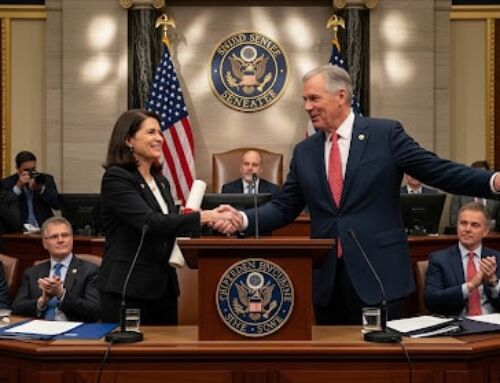
President Donald Trump was re-inaugurated for his second term on January 20, 2025. Through early February of 2025, HHS has undergone significant personnel changes, with more to come. A series of executive actions undertaken by President Trump in January has also affected HHS as well as other agencies. This article discusses the Trump HHS changes.
Acting HHS Secretary Dorothy Fink
One Trump HHS change is the replacement of President Biden’s Secretary of the Department of Health and Human Services, Xavier Becerra. On January 20, 2025, President Trump appointed Dr. Dorothy Fink, a board-certified endocrinologist, as Acting Secretary of the Department of Health and Human Services (HHS). Trump’s nominee for HHS Secretary is Robert F. Kennedy Jr.. Kennedy awaits confirmation by the U.S. Senate.
Acting OCR Director Anthony Archeval
A significant Trump HHS change will be the installation of a new HHS Office for Civil Rights Director. President Trump has tapped Anthony Archeval as Acting HHS Office for Civil Rights (OCR) Director. Archeval, an attorney, served as Diversity and Inclusion Director for the Health Resources and Services Administration during President Trump’s first term.
The changes in personnel have been accompanied by changes in policy priorities, as seen through a series of executive orders and a compliance review undertaken in response to one of these orders.
HHS Changes: Compliance Reviews
In alignment with President Trump’s Executive Order on Additional Measures to Combat Anti-Semitism, on February 3, 2025, the Office for Civil Rights announced the initiation of compliance reviews for four medical schools following reports of antisemitic incidents during their 2024 commencement ceremonies. The investigations will examine whether the medical schools complied with their obligations under Title VI of the Civil Rights Act of 1964 and Section 1557 of the Affordable Care Act to not discriminate on the basis of race, color, or national origin.
The reviews come in response to reported incidents of antisemitism and displays of offensive symbols and messaging during the ceremonies, including alleged expressions of support for terrorist organizations.
“Every student deserves access to educational opportunities free from discrimination and harassment,” said Archeval. “These compliance reviews reflect our commitment to ensuring that institutions receiving federal funding maintain learning environments that are safe and non-discriminatory for all students.”
HHS did not name the schools when announcing the probes. According to Becker’s Hospital Review, people familiar with the matter “told The Wall Street Journal that they involve medical schools at Cambridge, Mass-based Harvard University, New York City-based Columbia University, Providence, R.I.-based Brown University and Baltimore-based Johns Hopkins University.”
In a statement shared with Becker’s, Harvard Medical School said it “condemns antisemitism and remains committed to combating all forms of discrimination and harassment. We will continue to advance our efforts to ensure that all community members feel they belong on our campus and in our classrooms, and are supported in their learning, research, and professional work.”
HHS Changes: Regulatory Freeze
President Trump has also ordered a regulatory freeze, applicable to all executive departments and agencies. The freeze directs executive departments and agencies to not propose or issue any rule in any manner, including by sending a rule to the Office of the Federal Register (the “OFR”), until a department or agency leader appointed or designated by the President has reviewed and approved the rule. Therefore, it is not anticipated that HHS will propose or finalize any pending rule for the time being.
The executive order also directs agencies to consider postponing, for 60 days (that is, through March 21), any rules that have been published in the Federal Register, or any rules that have been issued in any manner but have not taken effect, for the purpose of reviewing any questions of fact, law, and policy that the rules may raise. One such rule is the proposal to modify the HIPAA Security Rule. That proposed rule was issued on December 27, 2024.
Other HHS rules that have been proposed but not yet finalized include Medicare and Medicaid rules relating to coverage for obesity medications and to tobacco product nicotine levels.
HHS Changes: The “Ten to One” Order
On January 31, 2025, President Trump signed an executive order titled “Unleashing Prosperity Through Deregulation.” The Order requires that whenever an agency promulgates a new rule, regulation, or guidance, it must identify at least 10 existing rules, regulations, or guidance documents to be repealed.









